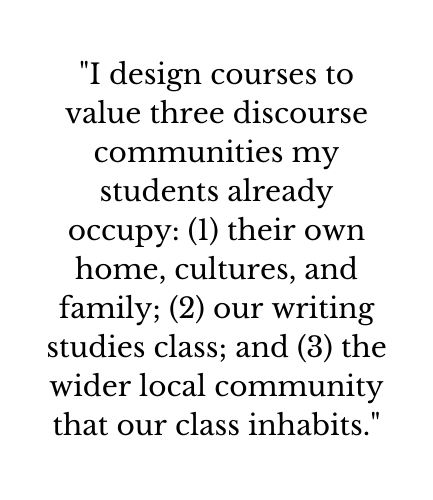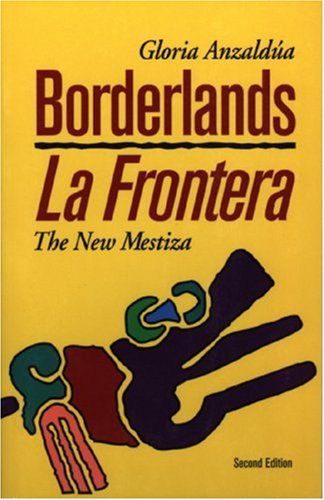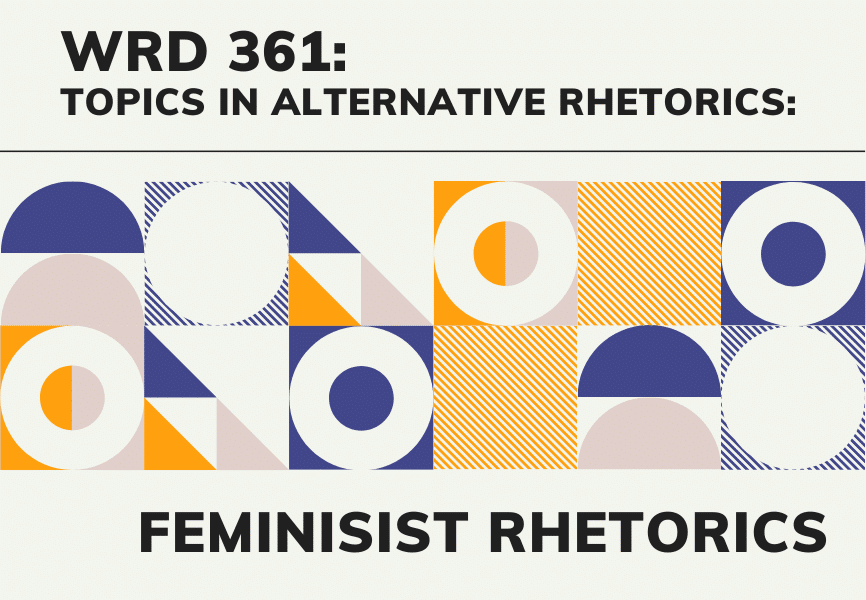Every year, the WRD Department offers a range of courses focused on topics in alternative rhetorics. In Autumn 2020, students will have the opportunity to take WRD 361: Topics in Alternative Rhetorics: Feminist Rhetorics, a course scheduled to meet Tuesdays and Thursdays from 11:20 to 12:50.
As an added bonus, WRD 361 will be taught by Monica Reyes, a new faculty member who will join the WRD Department in Autumn Quarter and who currently works in the Department of Writing & Language Studies at The University of Texas at Rio Grande Valley. We connected with Professor Reyes so students could learn more about what WRD 361 has to offer.
What is WRD 361: Feminist Rhetorics? Can you give an overview of the class?
Generally, this course focuses on alternative ways we can think about rhetoric. We’ll answer questions like, “are the standard and classical rhetorical traditions that focus on persuasion and dominance through speaking or writing suitable to help us understand one another?” Or, “what kinds of listening practices help us learn from one another more meaningfully?”

Specifically, we will engage with scholars who align with feminist rhetorics and study how a person’s story (and how their story is told) is best understood by connecting it to the small and wide contexts with which s/he interacts. As you can tell, this focus is not gender specific, so I am eager to work with students who may shy away from “feminism” because of the perception that it is only about/ for women.
Why are you interested in teaching WRD 361? How do you approach teaching, and how does that approach lend itself to a course on feminism?
I am drawn to a course about alternative perspectives of rhetoric because I understand the harm in universalizing people’s experiences with writing, language and culture. My teaching philosophy draws largely from my experiences as a Chicana woman who was predominantly educated and has taught along the U.S.- Mexico border within a Hispanic-Serving Institution (HSI). As a student of rhetoric and cultural studies, there were often times the course readings and activities were largely disconnected from my own experiences at home and in my community; at other times, the perspectives of some scholars of color my professors did include within the syllabi were taken as gospel, with little input of variances from students, often the very people which the texts aim to represent.

In sum, the exclusion I felt as a student has led me to embrace community-based pedagogical approaches to writing studies that are often associated with decolonial and feminist pedagogies. I design courses to value three discourse communities my students already occupy: (1) their own home, cultures, and family; (2) our writing studies class; and (3) the wider local community that our class inhabits. In this way, I view the writing classroom as a space for my students and me to explore how gender, racial, and linguistic classifications and hierarchies perpetuate geopolitical power scales as evidenced through the material and everyday experiences and scholarship of these communities.
What topics or theories do you hope to cover in the course?

We will read and write about a few diverse and major 20th and 21st century contributions women have made to the field of rhetoric and writing studies. After an introduction to feminist rhetorics (Foss and Griffin; Ratcliffe; hooks) in general, we will move toward feminist ecological approaches to rhetoric (Ryan, Myers, and Jones; Reynolds), and we will build gradually to transnational rhetorical feminism (Dingo; Hesford) and finally Chicana feminisms (Anzaldúa; Ríos; Zepeda). This organization of readings will help us progressively examine how the real and imagined situations people inhabit allow them to make meaning and be understood. Some major topics will include embodiment; space and place; and the agency of silence.
How might students make use of what they learn in WRD 361 through the rest of their time in the program or outside of the classroom?
Students who take this course will be challenged to use alternative literacies (listening, reading, writing) to engage with people’s individual lives, stories, and sufferings. Students will network and trace people’s stories to wider systems of historical, cultural, and material local- and geo-politics to help unveil the macro-level power structures and scales that afford and constrain people’s meaning-making. These kinds of literacy practices, commonly linked with feminist rhetorics, help us stay away from simplifying someone’s life choices and narratives.
